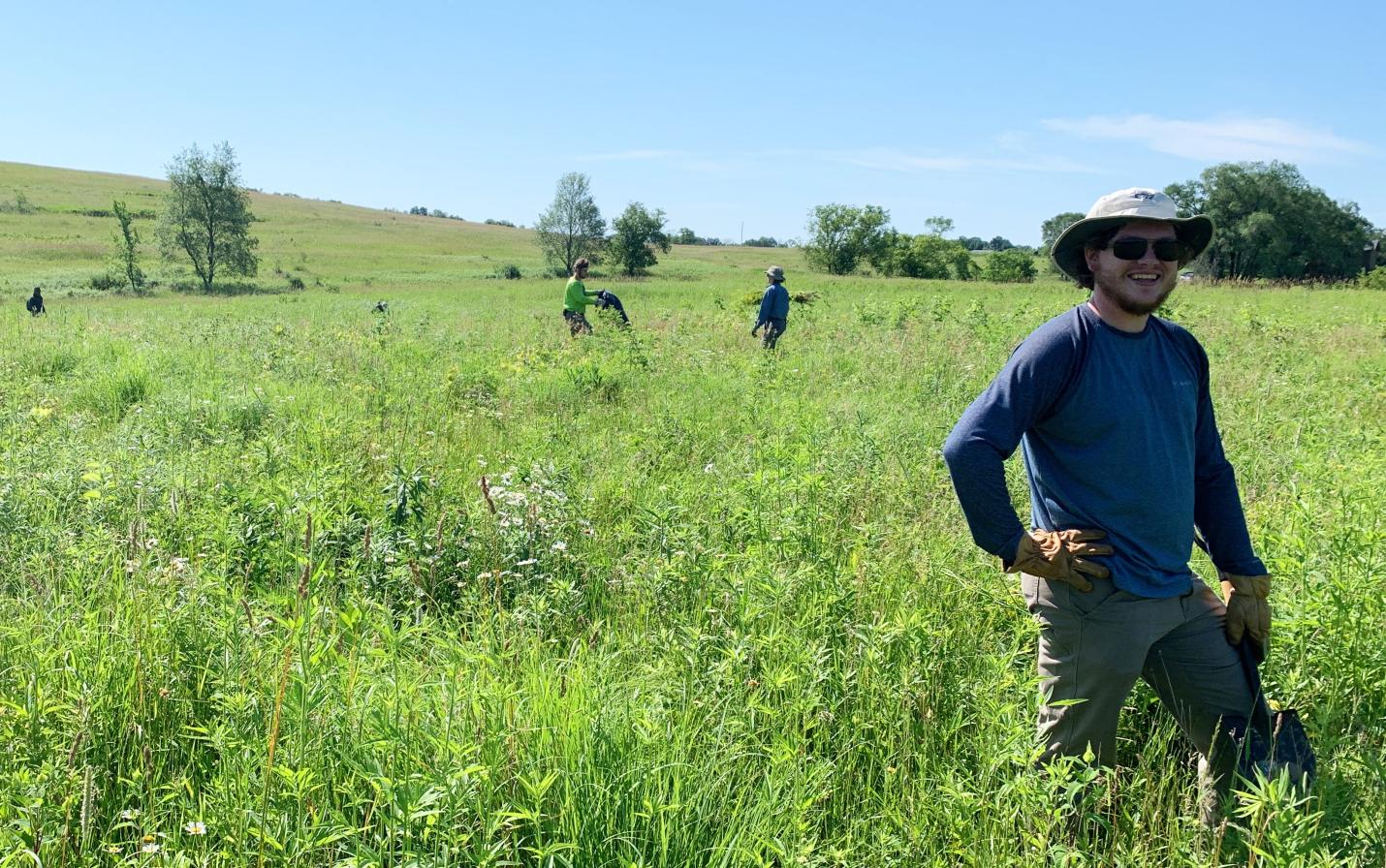
After a few rigorous weeks of training, your two paid summer intern crews are now actively honing their habitat restoration skills on many of the public and private lands you’ve protected.
The assignments given to the crews, mapped out by the Conservancy team, support the unique management plans for each property. In the field, the crews are mentored by Land Manager Levi Plath and by Restoration Coordinator Payton Lott. In a variety of ways, the interns are also guided by the landowners on whose properties they work.
On a recent assignment to help maintain a prairie on the Champnoise/Plachinski property in Richland County, the experience was mutually rewarding for the interns and the landowners, Connie and Art.
The interns saw how the former cropland is now in perennial cover of grassland plant species, including a native pollinator plot, thanks to the Conservation Reserve Program (CRP) plantings implemented by Connie and Art. They also saw how the land is still vulnerable to the growth of invasive plant species that can hitchhike onto properties, via wildlife and machinery, and quickly out-compete the native plants. Removing the “invasives” at the right time in their development means a greater chance for the native plant species to flourish year after year and provide habitat for a variety of migrating birds including meadowlarks, bobolinks, and dickcissel, all species of special concern.
In one day, the intern crew removed all the wild parsnip, a notorious invasive plant, from a ten-acre prairie planting on Connie and Art’s property. “They were a fun and energetic crew,” said Connie, “and they worked really hard!” She said meeting the crew and learning about their internship experience gave her hope for the future. She also commented that hiring an outside contractor to do what the intern crew did would have cost much more than the suggested donation she and Art made for the crew’s service.

Connie and Art made sure the interns were well-fed at lunchtime, with a spread that sustained them through the rest of the day. At the same time, the interns had the opportunity to learn from the landowners what their land means to them and why they chose to permanently protect it with a conservation easement through the Conservancy.
“This is exactly the kind of experience that helps the interns learn the best habitat restoration practices in our region while exploring their future careers in conservation,” commented Payton, “Meeting landowners and learning about their reasons for protecting their land also gives the interns broader understanding of diverse perspectives on land stewardship and conservation. I look forward to seeing what these interns do with what they’re learning.”
Thanks to your support, we're able to engage and inspire new generations of conservation experts each year! If you know somebody who might be interested in an internship with Mississippi Valley Conservancy, please encourage them to learn more here.